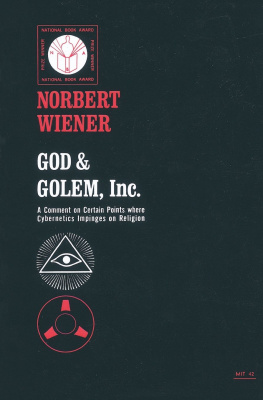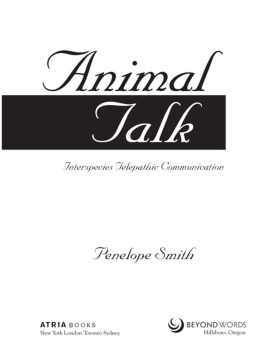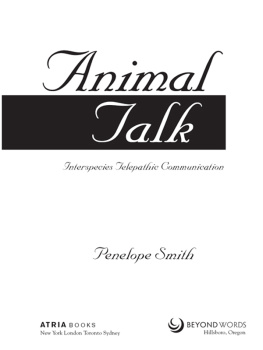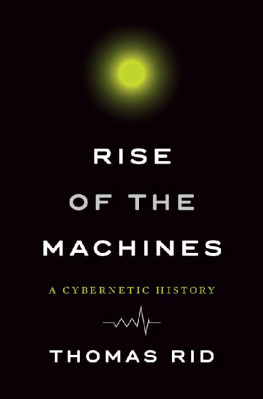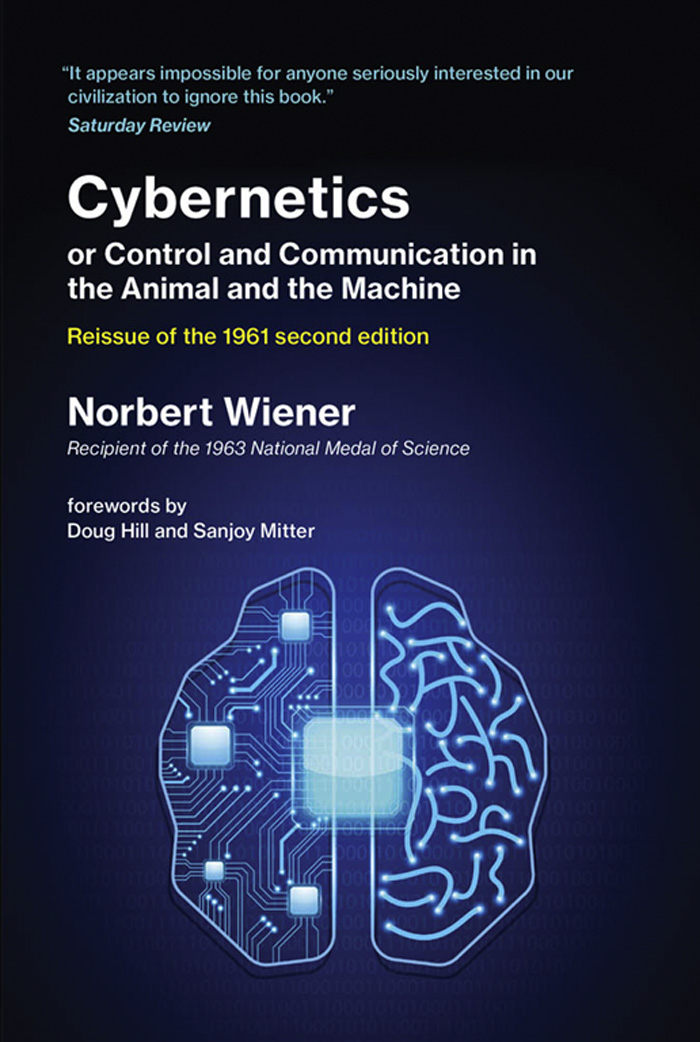
Cybernetics
Cybernetics
or Control and Communication in the Animal and the Machine
Norbert Wiener
forewords by Doug Hill and Sanjoy K. Mitter
The MIT Press
Cambridge, Massachusetts
London, England
2019, 1961, 1948 Massachusetts Institute of Technology
First MIT Press paperback edition, February 1965
All rights reserved. No part of this book may be reproduced in any form by any electronic or mechanical means (including photocopying, recording, or information storage and retrieval) without permission in writing from the publisher.
This book was set in ITC Stone Serif Std and ITC Stone Sans Std by Toppan Best-set Premedia Limited. Printed and bound in the United States of America.
Library of Congress Cataloging-in-Publication Data
Names: Wiener, Norbert, 1894-1964, author.
Title: Cybernetics ; or, Control and communication in the animal and the machine / Norbert Wiener ; forewords by Doug Hill and Sanjoy Mitter.
Other titles: Control and communication in the animal and the machine
Description: [Second edition, 2019 reissue]. | Cambridge, MA : The MIT Press, [2019] | Reissue of the 1961 second edition. | Includes bibliographical references and index.
Identifiers: LCCN 2019005612 | ISBN 9780262537841 (pbk. : alk. paper)
Subjects: LCSH: Cybernetics. | Control theory. | System theory.
Classification: LCC Q310 .W47 2019 | DDC 003/.5--dc23 LC record available at https://lccn.loc.gov/2019005612
10 9 8 7 6 5 4 3 2 1
To Arturo Rosenblueth
for many years my companion in science
d_r0
Contents
Doug Hill
Sanjoy K. Mitter
Foreword
Doug Hill
It tells you something about Norbert Wieners qualifications as a prophet that Cybernetics has been republished twice since it first appeared in 1948, and that on each of those occasions his thoughts and predictions about the technologies he helped create have seemed more ingenious, more prescient, and, in some respects, more troubling.
The New York Times acknowledged as much in 1965 when it turned over the front page of its prestigious book review section to Cybernetics first reissuea rare editorial honor indeed for a book that was, at the time, seventeen years old. (The decision to grant cover status may have been influenced by the fact that a month earlier Wiener had won, posthumously, a National Book Award for God & Golem, Inc.) The Times reviewer, John Pfeiffer, called Cybernetics one of the finest intellectual adventure stories ever written. He also noted, however, that upon the books initial publication, Wieners warnings about the potential dangers of computer technology had created something of a scandal. Three years after Hiroshima and Nagasaki, Americans were worried that scientists might not be able to contain the powers theyd unleashed. Wiener didnt reassure them.
His introduction concludes by noting his distress that those who contributed to the development of cybernetics, including himself, stand in a moral position which is, to say the least, not very comfortable. The techniques emerging from their ideas, he said, could be used for evil as well as good, and it was obvious he expected they would be. True, he said, many of his colleagues held out hope that cybernetics could lead to a better understanding of man and society. Speaking for himself, Wiener said, I am compelled to say that it is a very slight hope.
This latest reissue of Cybernetics likewise makes its appearance at a time when people are wondering whether we have our technologies firmly in control. And its safe to say Wiener would not be surprised that those anxieties arise from just the sorts of technological power he wrote about in 1948.
The likely impact of automation on employment is an example. Over the past few years, a plethora of articles, books, studies, and conferences have warned, often alarmingly, that advances in artificial intelligence and robotics pose a significant threat to a significant number of jobs. Some of these postulate that half or more of all jobs could soon be replaced. This will be the fastest transition humankind has experienced, said Kai-Fu Lee, an AI expert who has held executive positions at Google, Microsoft, and Apple, and were not ready for it.
Recent reports of thriving employment dont disprove automations impact; the decisive factor is how many of those jobs offer meaningful employment at a living wage, especially for unskilled workers. If that doesnt sound familiar, it will after reading Cybernetics, where Wiener uses exactly the same comparison. Wiener notes in the book that hed attempted to alert the labor unions of the threats posed by automation to their membership. With a few exceptions, he said, he found union leadership totally unprepared to enter into the larger political, technical, sociological, and economic questions which concern the very existence of labor. Today we seem more willing to talk about those questions. Whether were willing to do something about them is another question.
The potentially ruinous impact of communication technologies on democracy is another issue that Wiener anticipated with uncanny accuracy. The most fundamental conviction of cybernetic theory is that it all comes down to messages (i.e., information) sent and responded to (i.e., feedback). The functionality of a machine, organism, or society depends on the quality of those messages. Faithful exchanges of information allow the machine, organism, or society to maintain a state of homeostasis. Information corrupted by various forms of noise leads to the opposite.
In Cybernetics, Wiener calls the mass media of his day the single greatest anti-homeostatic influence in modern society. One wishes that the techno-utopians of Silicon Valley had heeded his point that genuine community extends only so far as the transmission of effectivemeaning homeostaticinformation. As the scale, scope, and speed of information technologies have increased, so has the potential for corruption. Certainly Mark Zuckerberg failed to appreciate that Facebooks global community of two billion users would inevitably produce countless messages that were antithetical to homeostasis, and thus to genuine community.
That the routine operation of computer technologies can lead to disaster was a point Wiener stressed repeatedly. Thinking machines are relentlessly literal-minded, he said. They mechanically perform the tasks we ask them to, even though their interpretation of those tasks may be diametrically opposed to what we had in mind. So it is that Facebooks algorithms have posted videos of murders as efficiently as theyve posted videos of marriages.
Speed is another routine feature of automation that Wiener frequently warned could thwart our intentions. As he put it in a 1960 essay for Science magazine, By the very slowness of our human actions, our effective control of our machines may be nullified. By the time we are able to react to information conveyed by our senses and stop the car we are driving, it may already have run head-on into a wall.
Given the profits they engender, its unlikely well stop using electronic trading programs anytime soon, which points to the driver of technological folly that most enraged Wiener: greed, for both money and power. He regularly railed against the hucksters in commerce and gadget worshippers in science whose cupidity leads irrevocably, he believed, to no homeostasis whatever. Readers will find piquant examples of Wieners disdain for the captains of capitalist industry in Cybernetics
Next page

